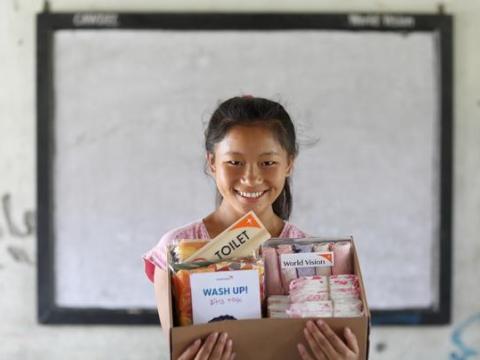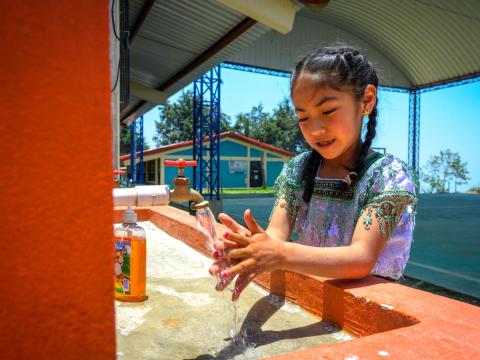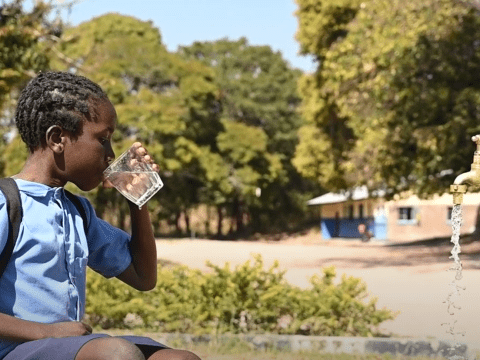
From Infrastructure to Impact: Revolutionising School Environments to Empower Every Student
Kristie Urich describes how a shift in World Vision's WASH programming is benefiting schoolchildren on multiple continents
As many parents, including myself, send children back to school, one critical but often overlooked element of education demands our attention: water, sanitation, and hygiene (WASH). Millions of students in countries where World Vision works face poor WASH conditions that disrupt learning, particularly for girls. Because of this, World Vision has expanded its school WASH programming, enhancing program quality beyond an infrastructure-focused approach to more inclusive, behaviour-focused initiatives that empower students.
The impact of WASH on learning
As a mom, I think about what many mothers where World Vision works have to consider as they send their child to school: Imagine sending your child to school with a small jerrycan of water as their only drinking water and for use by the school to cook lunch for the students. Imagine sending them to a school that does not have soap or water for handwashing. Imagine your adolescent daughter staying home during her period due to unsafe or inadequate facilities at school to manage menstruation.
These realities highlight the importance of WASH in Schools for children’s education, especially girls. While basic WASH facilities are standard in wealthier nations, they are often lacking in schools where World Vision works. World Vision has prioritized WASH in Schools for years, investing more than $55.3 million since 2018 and reaching nearly 8,800 schools with clean water by 2023.
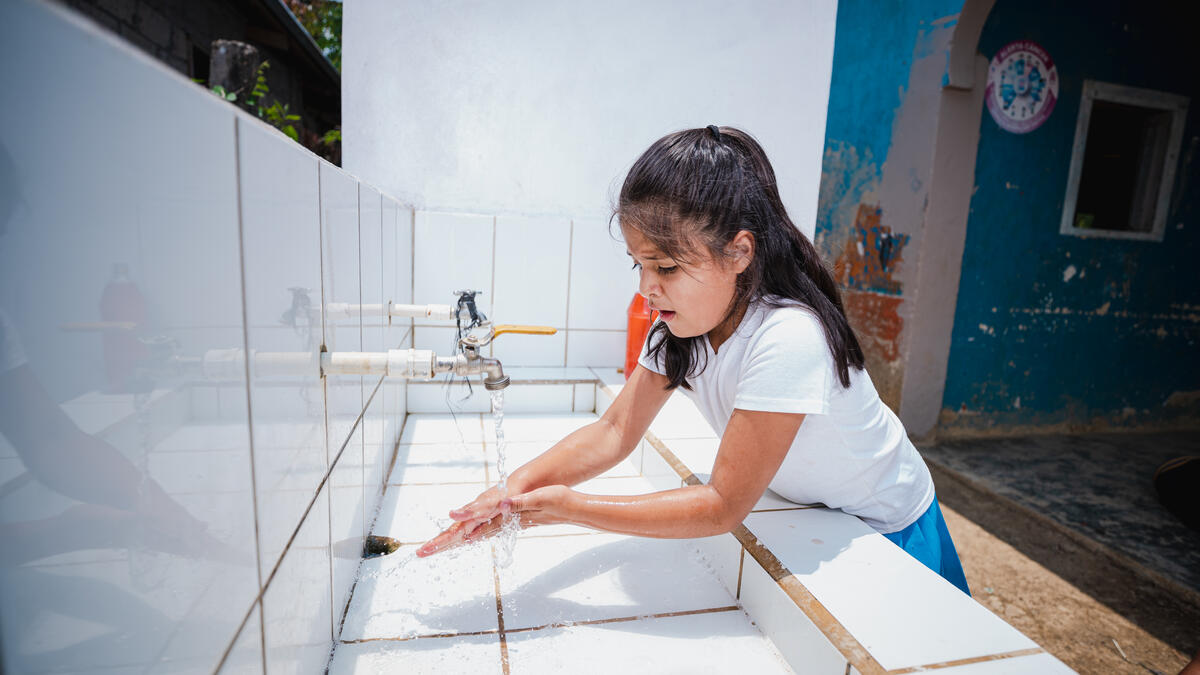
Enhancing access approaches with behaviour change
Early on, our WASH in Schools efforts focused predominantly on infrastructure—providing water access and basic toilets. While this laid an important foundation, in our commitment to continuous improvement, we have since shifted to emphasize WASH behavior change alongside our access-focused approaches. This includes student WASH clubs that promote drinking clean water, handwashing with soap, and safe toilet use, encouraging their peers to adopt these important health practices.
Over the years, we’ve enhanced our focus on behaviour change in our WASH in Schools programs. The most significant investment began in 2015 through a partnership with Sesame Workshop, launching the WASH UP! program, now in 18 countries including Honduras, which complements our other WASH programming. This child-centred, play-based approach empowers boys and girls as champions for healthy sanitation and hygiene behaviours in their schools, families, and communities.
Building on WASH UP!, we partnered with Sesame Workshop to launch the WASH UP! Girl Talk program, which educates older students about puberty and menstrual health, significantly impacting girls’ educational attainment. The program empowers girls with knowledge and resources to manage their menstrual health with dignity and teaches boys to foster a supportive environment. Educating both girls and boys on this topic fosters healthy and equitable mindsets, helps girls stay in school and learn, and helps prevent child marriage. Since its 2017 launch in Zimbabwe, Girl Talk expanded to Kenya, Honduras, Guatemala, and El Salvador in 2024, testifying to the value of World Vision’s investment in WASH in Schools.
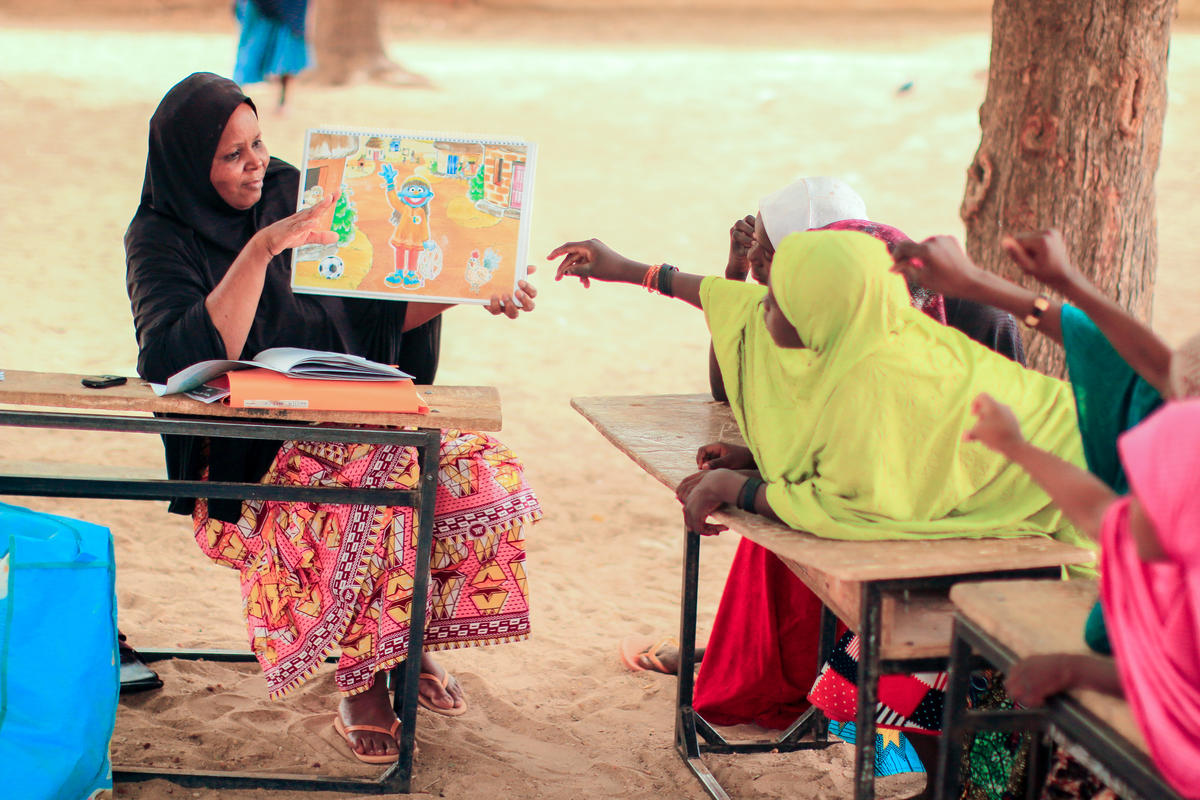
Investing in accessible, equitable, and inclusive WASH services
We are accelerating equitable WASH service access in schools by focusing on gender equality. and social inclusion. Additionally, we are facilitating the meaningful participation of marginalized groups by removing barriers, enabling decision-making and personal agency, and reinforcing positive and equitable social norms. This includes girl-friendly toilets, disability inclusion, appropriate student-to-latrine ratios, and piped-water systems over handpumps to ensure quality and inclusivity.
Equitable and inclusive WASH services help ensure girls feel safe using the toilet facilities and they can confidently and hygienically manage their menstruation. Additionally, inclusive sanitation approaches ensure children with physical disabilities can access school toilets and handwashing facilities. In collaboration with Sesame Workshop, we’ve made WASH UP! more inclusive by representing children with disabilities in the materials and actively engaging more than 3,600 children with disabilities in the programme.
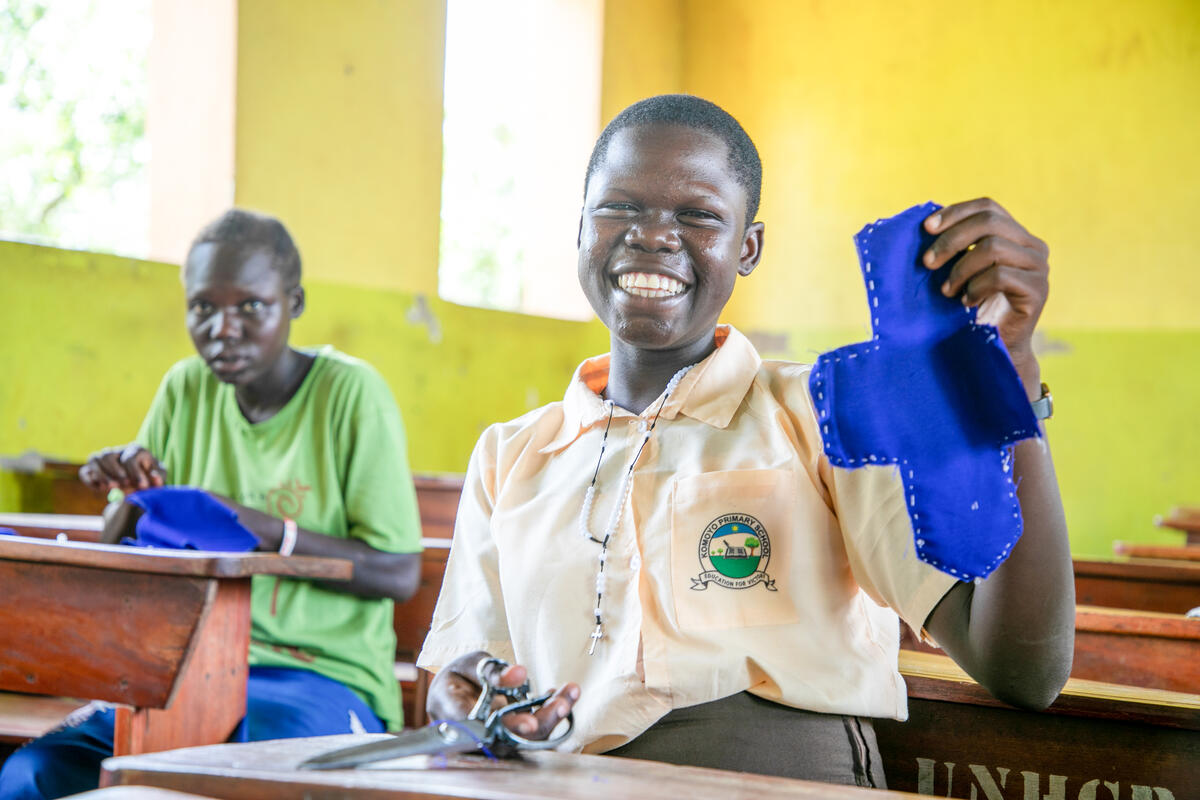
Reaching everyone, everywhere we work with sustainable WASH services
Between 2018 and 2023, World Vision provided water to nearly 3.5 million students in schools. As our investment shows, it is not only the infrastructure that matters, but engaging the people who use and manage that infrastructure. Partnering with teachers, students, and school administrators through behaviour change initiatives propelled our impact, increasing both effectiveness and sustainability.
World Vision is committed to reaching everyone, everywhere we work with sustainable WASH services, in pursuit of SDG 6, with the goal of reaching 50 million people across more than 40 countries by 2030. We will continue to strengthen our focus on WASH in Schools, emphasizing behaviour change, quality assurance, continuous learning, and ensuring accessible, equitable, and inclusive WASH for all students.
Learn more about World Vision's water, sanitation and hygiene programming here
Kristie Urich is World Vision US's WASH Technical Director.
